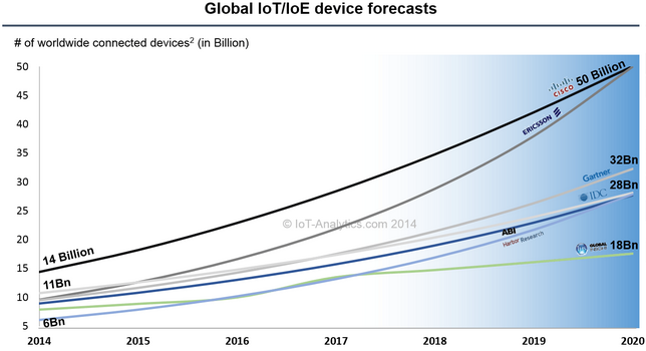Interop pizza night
Published on 2016-08-27My two colleagues @RobinGilijamse and Jeroen van Es went to Interop Las Vegas 2016 and gave a pretty nice presentation about it. Thanks guys! Here’s a summary of some of the personal highlights for me.
5G versus LAN networks
The presentation included a couple of intentionally bold statements, like “in 5 years, we have no more LAN, only 5G”. I’ve never thought about the possibility like that, and obviously local area networks will still be around for a while. It might be very true though that the way our devices connect to the internet will change in this direction, and it might happen very fast. This will have impact on the career of network engineers, but more about that later on.
IoT
IoT stands for Internet of Things and the term basically refers to the fact that we are seeing an exponentially increasing amount of sensors getting hooked up to the internet. These sensors are becoming cheaper and cheaper. Large industrial and commercial organizations will be able to make huge profits from leveraging them. IoT will be a big driver for IPv6 implementation, there is no real alternative as IPv4 (including NAT) won’t suffice. IoT is a hot topic right now, like everything about cloud for example, and we are going to keep hearing more and more about it. The consensus is that the IoT market is gonna grow a lot, as reflected in this spending forecast by iot-analytics.com.
Career paths
There is a lot of talk about what career choices IT professionals and specifically network engineers should make. We hear wild claims that we have to choose between becoming programmers or jobless. The most sensible reaction to these stories I’ve heard is that mastering the basics is always going to stay relevant, for troubleshooting or making sensible product choices for example. Daniel Dib has published two great interviews about this subject, one with Pete Lumbis and one with Russ White.
The Interop presentation took a more general stance on this topic, which I found very refreshing. The main point was that high-skilled, knowledge-based jobs have been increasing for years and will probably continue to do so, while there probably won’t be an increasing amount of routine-based jobs. The second point was that choosing one specialization isn’t the best career option anymore. That’s probably been the case for a long time for network engineers, as Phil Gervasi argues here.
All in all, visiting Interop proved to be a very worthwhile experience for my colleagues and our company. I hope to go visit Interop myself once the time is ripe. I did actually apply for the InteropNet volunteers for 2016 but I didn’t make the selection. I guess I will just keep applying until I make the team, again and again and again.


